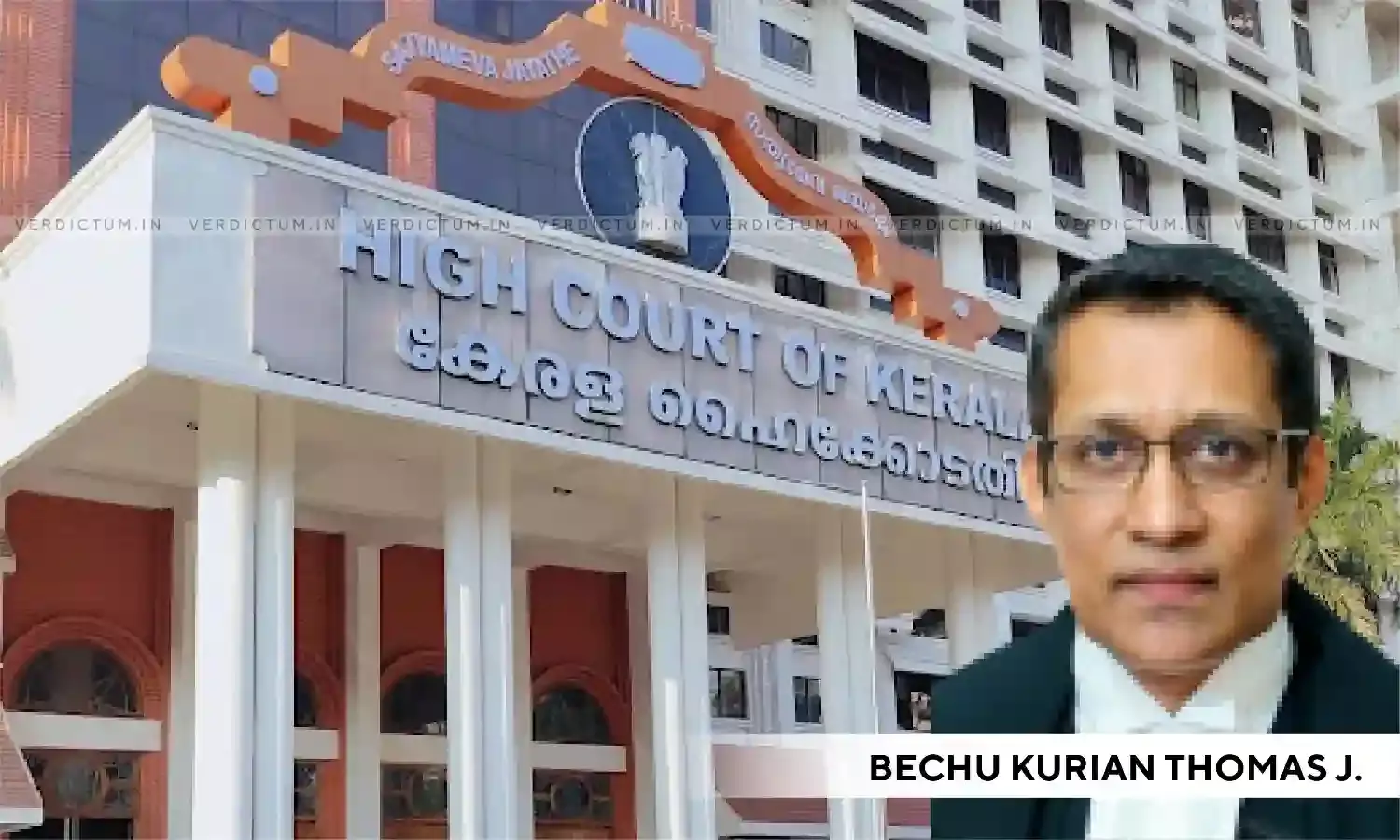Care Must Be Taken To Avoid Consensual Relationships Being Converted Into Instances Of Rape – Kerala High Court

Justice Bechu Kurian Thomas of Kerala High Court while granting bail to the actor-producer Vijay Babu in a rape case has held that care must be taken to avoid consensual relationships being converted into instances of rape.
In this context, the Court noted –
"As observed in Aparna Bhat and Others v. State of Madhya Pradesh and Another [(2021) SCC OnLine SC 230], the stereotyped notions of chastity, resistance to rape, having visible physical injuries, behaving in a certain way, reporting the offence immediately, etc are all rape myths. Notwithstanding the above, care must be taken to avoid consensual relationships being converted into instances of rape. Thus, each case presents its own factual scenario and therefore certain grounds peculiar to each case can be taken into account."
The Bench also held that an application for pre-arrest bail can be filed even by a person residing outside the country. However, the only limitation is that prior to the final hearing, the applicant must be inside the country to enable the court to impose and enforce conditions contemplated under the statutory provisions.
An application for anticipatory bail was filed under Section 438 CrPC by the producer Vijay Babu before the High Court apprehending arrest in a non-bailable offence of Rape.
On the basis of the information received from an actress alleging several instances of Rape committed on her by the Petitioner, a case was registered against him. It was alleged that the Petitioner had committed rape on the victim with the promise of marriage, twice during her menstrual periods and on other occasions, after causing physical injuries and without her consent.
The Prosecution alleged that on coming to know of the case registered against the Petitioner, he went abroad in an attempt to flee from the hands of the law and sitting in the comfort of another country, instituted the bail application under Section 438 CrPC.
The Petitioner contended before the Court that he was subjected to interrogation for more than 38 hours and has voluntarily surrendered the two mobile phones in his possession and had also handed over all the documents available to him.
Further, it was also argued that an acquaintance with the victim from 2018 had slowly turned into a relationship of consensual sex. Also, the consensual sexual relationship was done with the knowledge that the Petitioner was a married man and therefore the offences alleged are not made out at all.
Maintainability of the bail application
The Court noted that when the application was filed, the Petitioner was not in India and it was alleged that the Petitioner fled from India after coming to know of the registration of the crime.
Further, the Bench also noted that the High Court had passed an interim order not to arrest the Petitioner and, on that basis, the Petitioner returned and is presently in Kerala.
The Court considered the issue regarding the maintainability of the application of pre-arrest bail while the applicant is residing outside the country.
The Bench further placed reliance on Souda Beevi and Another v. S.I. of Police and Others (2011 (3) KHC 795) and Shafi S.M. v. State of Kerala and Another (2020 (4) KHC 510) on the basis of which it was argued that that presence of the Petitioner outside the country disentitles the applicant to seek pre-arrest bail.
The Court thus observed –
"A reading of the aforementioned two decisions shows that such an absolute restriction has not been laid down by this Court. On the other hand, all that those two decisions say is that, atleast before the final hearing, the Court must be convinced that the applicant is within the jurisdiction of the Court so that the conditions if any imposed, could be effectively enforced."
"Section 438 Cr.P.C does not contain a restrictive mandate that a person residing outside the country cannot file an application for anticipatory bail. It is possible that a person can apprehend arrest even outside the country for an offence that occurred in India. With the advancement in investigative technology and communication, the various agencies of investigation could even be deployed to arrest a person outside the country. An apprehension of arrest can arise even while the applicant is residing outside the country. Thus, when a bonafide apprehension exists, the statute confers power on such a person to seek protection from arrest. In the absence of any restrictive clauses in S.438, restricting the right of a person residing outside the country from filing an application for pre-arrest bail, court cannot read into the provision such a restriction which the legislature did not incorporate," the Court opined.
The Court thus held, "Therefore, I am of the considered view that an application for pre-arrest bail can be filed even by a person residing outside the country."
Grant of Pre-Arrest bail
The Court while adjudicating upon the issue as to whether pre-arrest bail should be granted to the Petitioner placed reliance on Shri Gurbaksh Singh Sibbia and Others v. State of Punjab [(1980) 2 SCC 565] and Sushila Aggarwal and Others v. State (NCT of Delhi) and Another [(2020) 5 SCC 1] and observed –
"The above decisions thus hold that while considering an application for anticipatory bail, the court must be guided by considerations such as nature and gravity of the offences, the role attributed to the applicant, facts of the case, the character of evidence, position and status of the accused with reference to the victim and witnesses, the likelihood of the accused fleeing from justice and repeating the offences, the possibility of the accused tampering with the evidence and obstructing the course of justice."
The Court thus held that the Petitioner ought to be given the benefit of pre-arrest bail and allowed the application.

